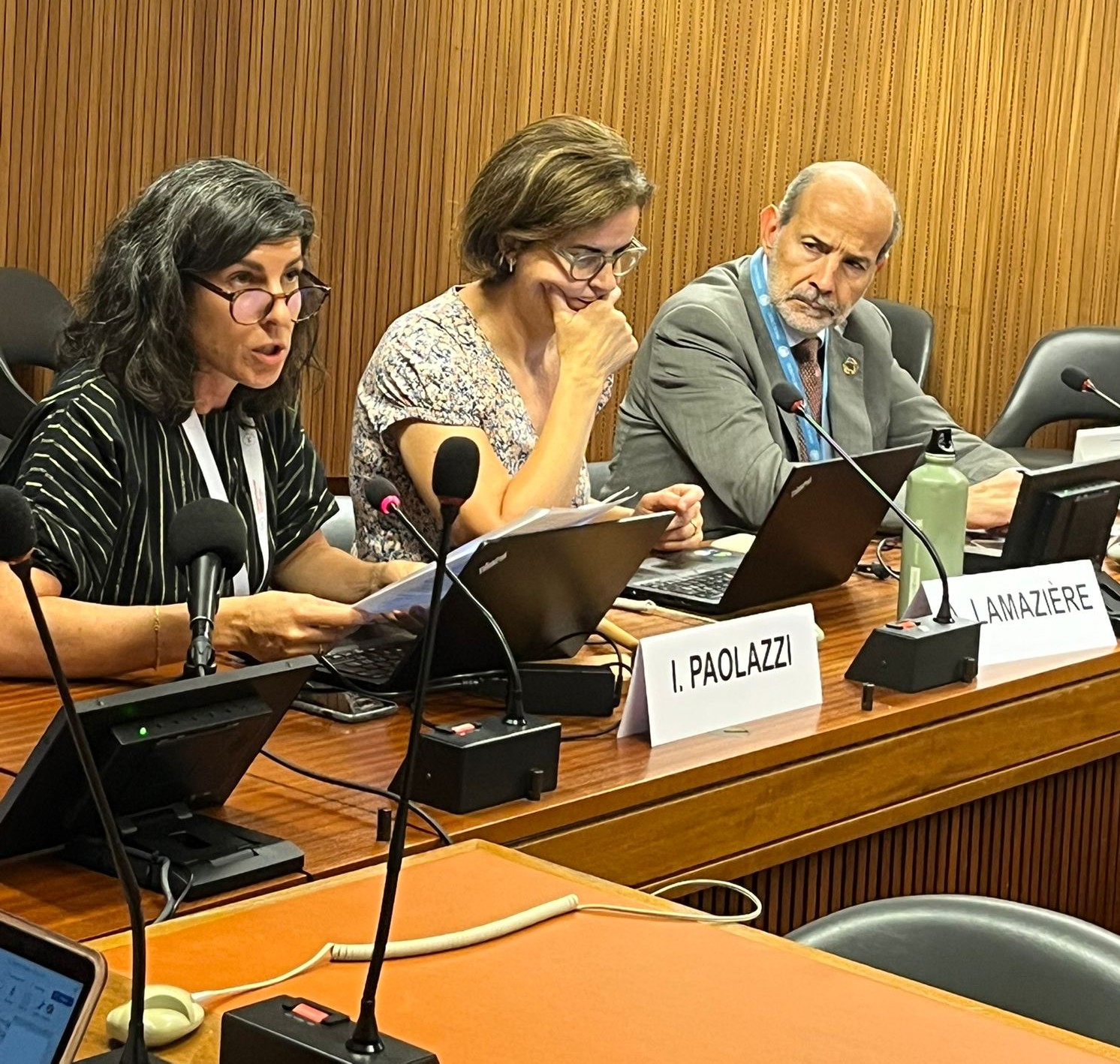GCPEA News
Spotlighting Attacks on Education in the Occupied Palestinian Territory
GCPEA, July 23, 2025
As the escalation of hostilities in Gaza and the West Bank reaches its 21st month, the Global Coalition to Protect Education from Attack (GCPEA) and Save the Children, with the support from the Permanent Missions of Belgium, Ireland, Norway, Slovenia, South Africa, Spain and Uruguay in Geneva, came together to organize a side event at the 59th Session of the Human Rights Council on 1 July. The event, entitled “Education under attack in the occupied Palestinian territory: Latest findings and strategies for greater accountability”, sought to highlight and denounce the scope and impact of attacks on education in the occupied Palestinian territory (oPt) and call for greater accountability.
In her introduction and role as moderator, Aurelie Lamazière, Senior Programme Manager at Save the Children and lead on accountability for grave violations affecting children, reminded the audience of the horrific scale and intensity of violations impacting children. Among these violations, the side event aimed to shed light on the damages committed against educational facilities, and the impact of the loss of access to education. She commended the work of the Commission of Inquiry in documenting and investigating extensively the full breadth of violations affecting children and the importance of supporting such efforts toward greater accountability.
During his opening remarks, H.E. Mr. Marcos Gómez Martínez, Ambassador and Permanent Representative of Spain to the United Nations in Geneva, emphasized the need for states to hold those responsible for attacks on education accountable: “The [Independent International] Commission [of Inquiry on the Occupied Palestinian Territory, including East Jerusalem and Israel] (COI) categorizes the actions that are taking place in Gaza as war crimes and the crime against humanity of extermination…Gaza stands as a test of the credibility of the system…Impunity needs to end.”
Chris Sidoti, a member of the COI, highlighted key data from the Commission’s newly published report. The report documents and investigates attacks on educational facilities that were damaged or destroyed through controlled demolition, airstrikes, and burning, some of which were serving as shelters for internally displaced persons, primarily children and women. Importantly, the report deduced that by killing civilians sheltering in schools, Israeli security forces committed the crime against humanity of extermination. Mr. Sidoti underscored that these attacks are considered war crimes under international humanitarian law: “It was clear through [evidence we collected] that at the time of demolishing or burning down schools, there was no fighting in the area, which also suggests there was no military justification for these actions and a clear intent to destroy educational facilities.”
Fadi Baidoun, the Coordinator of the oPt Education Cluster, emphasized the staggering data of attacks on education and cost of inaction on individual children, as well as the Palestinian society and economy as a whole: “If we do not act now and if we do not protect children from attack and education from attack, we will be losing generations to come in Palestine.” His presentation illustrated the current status of access to education for Palestinian children to this date and the response from education partners.
Julia Dicum, the Director of Education at UNRWA, underscored how the lack of access to education has directly affected students. UNRWA schools have been attacked, despite their protections under international law, disrupting the integral educational and psychosocial support services they provide. With UNRWA suffering from funding cuts, like many education in emergency organizations, the future of its services in Gaza are in jeopardy.
Ilaria Paolazzi, Senior Advocacy and Policy Advisor at GCPEA, noted the hundreds of attacks on education that GCPEA has recorded in Gaza and the West Bank in recent years, condemning “Israel’s systematic attack of the Palestinian education system, and particularly what the Special Rapporteur on the right to education has defined “scholasticide” in Gaza.” She urged states to further strengthen monitoring, reporting, and investigative mechanisms to ensure crimes affecting education are prosecuted, as outlined in GCPEA’s accountability guide. Ms. Paolazzi commended the Commission’s specific focus on attacks on education, which is too often under-investigated and under-prosecuted at all levels, “even when evidence suggests they amount to war crimes and crimes against humanity, as in the oPt.”
Tsholofelo Tsheole, Deputy Permanent Representative of South Africa to the United Nations in Geneva, spoke on her country’s leadership in utilizing existing accountability mechanisms: “South Africa sought to hold Israel accountable for violating its obligations under the Convention on the Prevention and Punishment of the Crime of Genocide by instituting proceedings at the International Court of Justice.” Informed by this experience, she provided recommendations to states to strengthen accountability on education-related crimes, including through condemning and amplifying these violations in legal and political frameworks, strengthening multilateral engagement and the investigative authority of the UN and other international organizations, upholding state obligations under international law, and enhancing monitoring and reporting.
GCPEA remains committed to amplifying the visibility of patterns of attacks against educational facilities, personnel, and students and will continue to advocate for the strengthening of protection of education in the oPt. GCPEA calls on all parties to endorse and implement the Safe Schools Declaration and its Guidelines, taking all feasible measures to end the military use of educational facilities and ensuring the continuity of education for all children and youth.





